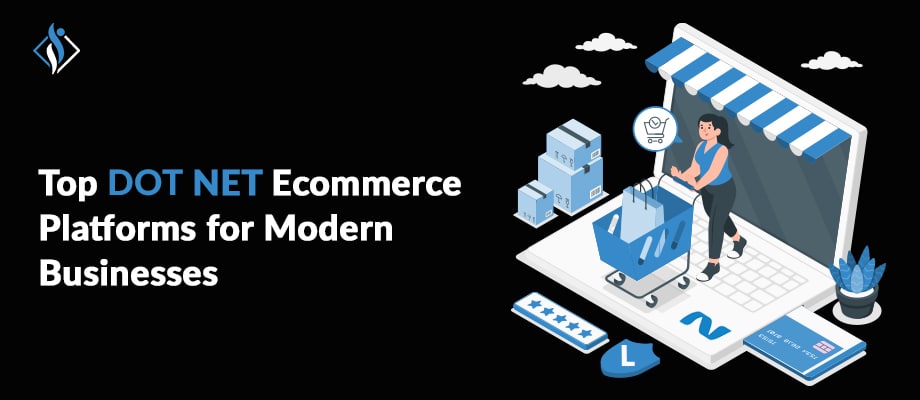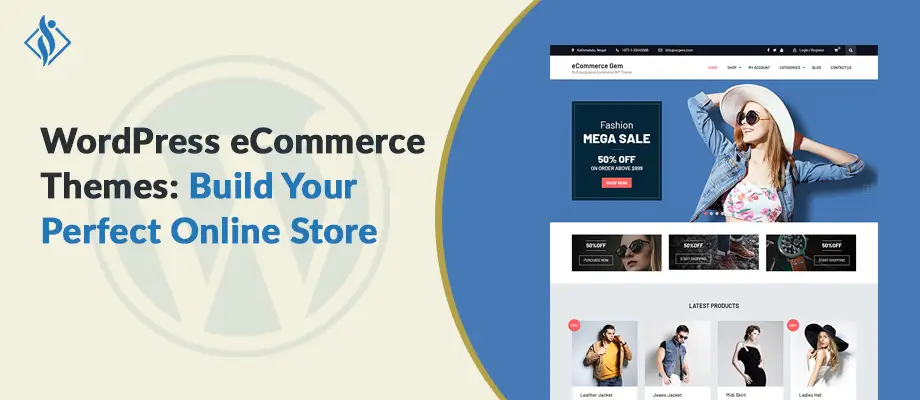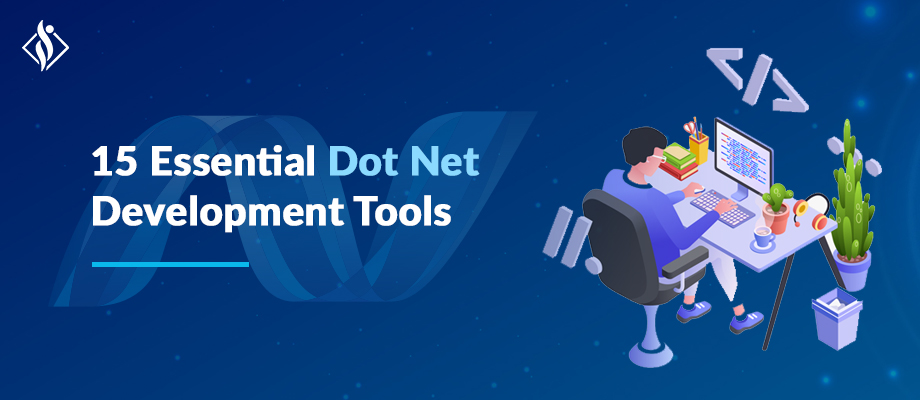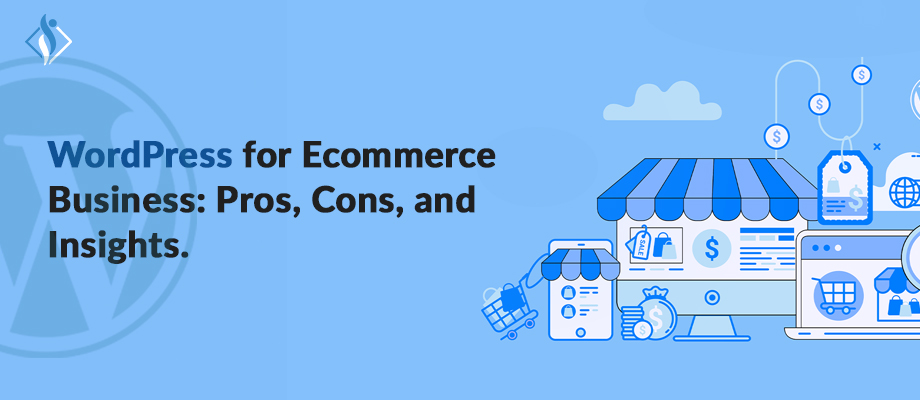Home » .NET Development » 7 Best .NET Platforms for Ecommerce Success
7 Best .NET Platforms for Ecommerce Success

In today’s digital world, a strong eCommerce platform is key for business success. With growing competition, businesses need reliable and flexible online store solutions. This is where .NET eCommerce platforms come in. Created by Microsoft, they’re popular among businesses, startups, and .NET development company. They offer security, adaptability, and smooth shopping experiences.
What is a .NET eCommerce platform?
A .NET eCommerce platform is a digital solution built on the .NET framework, designed to facilitate online commerce. These platforms provide businesses with the tools and infrastructure to set up, manage, and optimize their online stores. Leveraging the robustness and scalability of the .NET framework, these platforms offer a seamless blend of functionality, security, and flexibility.
What statista states says, “In 2022, around 25.3% of respondents used .NET (5+) Framework, while around 17% of respondents used .NET Framework (1.0 – 4.8). “
Why choose .NET for eCommerce?
The .NET framework, developed by Microsoft, is renowned for its reliability, scalability, and versatility. When it comes to eCommerce, these attributes translate into a stable and efficient platform that can handle vast amounts of data, high traffic volumes, and complex operations, all while ensuring a smooth user experience.
Is .NET good for eCommerce?
Here are 8 reasons why .NET is good for eCommerce.
- Reliability: The .NET framework is a brainchild of Microsoft, a name synonymous with trust and reliability in the tech world. This reliability translates into a stable online environment, ensuring uninterrupted business operations.
- Scalability: As businesses grow, so do their digital needs. Dot NET platforms are inherently scalable, accommodating increasing traffic, expanding product listings, and evolving business models with ease.
- Security: In an era where data breaches are rampant, .NET offers a fortress of security features. It ensures that critical data, such as customer details and transaction histories, remain impervious to threats.
- Integration Capabilities: The digital ecosystem of a business often comprises various tools and systems. .NET’s seamless integration capabilities ensure that these systems work in harmony, enhancing overall functionality.
- Customization: No two businesses are identical. Recognizing this, .NET offers extensive customization options, allowing businesses to mold the platform according to their unique needs.
- Performance Metrics: In the digital realm, speed is of the essence. .NET ensures rapid page loads, swift transactions, and an overall brisk user experience.
- Community Support: A vast community of developers and experts surrounds .NET. This means a wealth of resources, from troubleshooting guides to innovative plugins, is always at hand.
- Mobile Optimization: With mobile commerce on the rise, .NET platforms are often designed with a mobile-first approach, ensuring businesses don’t miss out on this significant chunk of the market.
Top 7 .NET Ecommerce Platforms
Here are the best 7 dot NET ecommerce platforms and their features.
1. NoP Commerce
NoP Commerce is a free, open-source eCommerce solution that has been making waves in the digital commerce sector. Built on Microsoft’s ASP.NET Core framework, it offers a blend of robustness and flexibility, making it a favorite among both startups and established businesses. Its architecture is designed to cater to both B2B and B2C commerce needs. With a rich catalog structure, it supports simple, grouped, and bundled products.
Its scalability ensures that as your business grows, NoP Commerce grows with you, handling increased traffic and expanding product listings seamlessly. Moreover, its open-source nature means that a vast community of developers continually contributes to its evolution, ensuring that it remains at the forefront of eCommerce innovations.
Features:
- Multistore Capability: Manage multiple stores from a single dashboard, each with its unique branding, catalog, and settings.
- Multi-vendor Support: Allow multiple vendors to sell on your platform, each having a dedicated admin panel, without the need to hold inventory.
- SEO Optimization: Built-in features like URL rewriting, sitemaps, and meta tags ensure that your store ranks well on search engines.
- Flexible Discount System: From tiered pricing to time-limited offers, roll out a variety of discounts to entice customers.
- Global Commerce: Support for multiple languages and currencies ensures that you can cater to a global audience.
- Mobile Commerce: A responsive design ensures that your store offers a seamless shopping experience across devices, from desktops to smartphones.
2. Umbraco
Umbraco is not just another eCommerce platform; it’s a comprehensive content management system (CMS) that seamlessly integrates online shopping features. Built on the .NET framework, Umbraco is known for its flexibility and user-friendly interface.
It’s particularly favored by businesses that prioritize content marketing and storytelling alongside their eCommerce operations. With a vast community of developers, Umbraco boasts a rich ecosystem of plugins and extensions, ensuring businesses can tailor the platform to their unique needs.
Features:
- Unified Experience: Seamlessly merge content and commerce, ensuring a cohesive user journey from reading a blog post to making a purchase.
- Extensive Plugin Library: From SEO tools to social media integrations, access a plethora of plugins to enhance your store’s functionality.
- Responsive Design: Ensure your content and products shine across devices, be it desktops, tablets, or mobiles.
- Built-in SEO Tools: Native tools to optimize content, ensuring higher visibility on search engines.
3. Sitecore
Sitecore stands out as a premium platform, known for its advanced personalization and AI-driven features. More than just an eCommerce platform, Sitecore is a digital experience platform, ensuring businesses offer a tailored user journey. It’s designed for enterprises that prioritize a bespoke user experience, offering tools to personalize content, products, and marketing efforts.
Features:
- AI-driven Personalization: Offer a tailored shopping experience, with product recommendations and content driven by AI insights.
- Omnichannel Marketing: Ensure a consistent brand experience across all touchpoints, from social media to the online store.
- Robust CMS: A comprehensive content management system ensures businesses can manage all their digital content seamlessly.
- Advanced Customer Segmentation: Dive deep into customer behavior, segmenting users for tailored marketing efforts.
4. Kentico
Kentico is a holistic digital solution, amalgamating content management, online marketing, and eCommerce under one roof. With a rich set of out of the box features, Kentico ensures businesses have all the tools they need to succeed online. It’s particularly favored by businesses looking for an all-in-one solution, reducing the need for multiple platforms and integrations.
Features:
- Integrated Marketing Suite: Manage all online marketing efforts, from email campaigns to social media, from a unified dashboard.
- A/B Testing: Continuously optimize the user experience, testing different site versions to find the optimal layout and content.
- Personalized Content Delivery: Offer content tailored to user behavior, ensuring higher engagement and conversion rates.
- Multi-currency Support: Cater to a global audience, offering pricing in multiple currencies.
5. Virto Commerce
Virto Commerce stands out as a cloud-based, modular eCommerce platform designed for scalability and flexibility. It’s particularly suited for businesses with complex business scenarios and those looking to grow and expand their online presence rapidly. Built on .NET Core, it offers both enterprise and community editions, catering to a wide range of business needs.
One of its standout features is its modularity, allowing businesses to pick and choose functionalities as per their requirements. This ensures a lean, efficient, and tailor-made solution. Moreover, its API-based architecture means that it can easily integrate with other systems, be it CRMs, ERPs, or custom-built applications.
Features:
- Dynamic Content Management: A robust CMS ensures that businesses can manage their content, from product listings to blogs, with ease.
- Advanced Search Capabilities: Leveraging Elasticsearch, it offers customers a fast and accurate search experience.
- Flexible Pricing: Support for multiple pricing models, including tiered, promotional, and geo-based pricing.
- Personalization: AI-driven insights allow businesses to offer personalized product recommendations and shopping experiences.
- Integration Ready: Its API-first approach ensures that it can seamlessly integrate with other systems, enhancing overall functionality.
- B2B Commerce: Features like corporate accounts, shared catalogs, and custom price lists cater specifically to B2B commerce needs.
6. Grandnode
Grandnode is a unique blend of eCommerce and CMS capabilities, designed for businesses that value a holistic approach to their online presence. Built on the .NET Core framework, Grandnode is open source, ensuring a dynamic evolution driven by its community. It’s particularly suited for businesses that prioritize content marketing, offering tools to seamlessly integrate blogs, reviews, and products.
Features:
- Multi-tenant Architecture: Host multiple stores or brands under one platform, each with its distinct branding and settings.
- Advanced Analytics: Dive deep into user behavior, sales metrics, and more with an intuitive dashboard.
- Shipping Integrations: Seamlessly connect with popular shipping providers, streamlining logistics.
- Dynamic Pricing Models: Offer tiered pricing, seasonal discounts, and loyalty programs to engage customers.
7. SimplCommerce
SimplCommerce, as the name suggests, offers a straightforward yet powerful approach to online retail. Designed on the .NET Core framework, it’s lightweight, ensuring swift page loads and seamless transactions. Its modular architecture means businesses can pick and choose functionalities, ensuring a lean and efficient platform tailored to their needs.
Features:
- Modular Design: Add or remove features as per business requirements, ensuring an agile platform.
- Mobile-optimized: A responsive design ensures a seamless shopping experience, catering to the growing mobile user base.
- Diverse Payment Options: Integrate with a variety of payment gateways, offering customers multiple payment methods.
- User-friendly Backend: An intuitive admin panel ensures businesses can manage products, orders, and customers with ease.
Can I use .NET for eCommerce websites?
Absolutely. As highlighted above, .NET offers a plethora of benefits for eCommerce, from scalability and security to customization and integration. Whether you’re a startup or an established business, Dot NET development tools provide the necessary framework for establishing a thriving online store.
Conclusion
Choosing the right platform is critical for an eCommerce business’s success. With their rich features and capabilities, NET eCommerce solutions provide firms with a competitive advantage in the digital marketplace. There’s a.NET solution for any business need, whether it’s the open-source nature of NoP Commerce or the deep personalization features of Sitecore. Investing in a.NET eCommerce platform guarantees that organizations remain adaptable, secure, and ahead of the curve as the digital world evolves.
I am working as Full Stack Developer at Samarpan Infotech which always able to learn the latest technologies and architectural systems research and development. Strongly believe in "If you live each day as it was your last, someday you'll most certainly be right".



